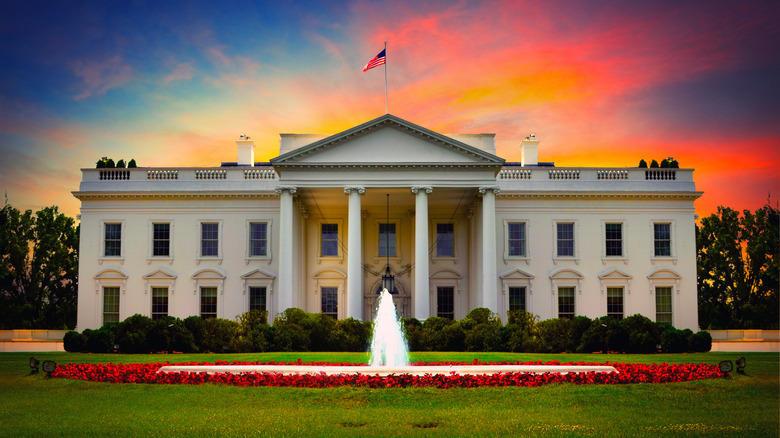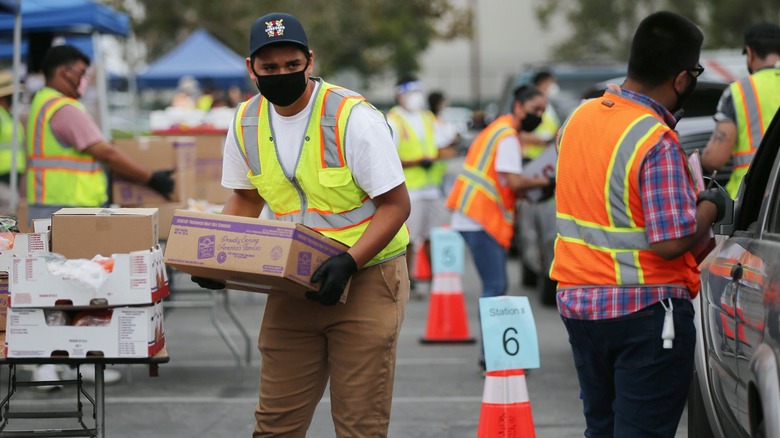The White House Is Planning A Food Conference To Address Hunger
The White House has announced that it will host its promised Hunger, Nutrition, and Health conference on September 28. President Joe Biden announced in May that the upcoming conference would be held in September after Congress passed bi-partisan legislation this spring approving $2.5 million for the White House to host the event. However, the exact date was not revealed until August 29 (per NPR).
The conference, which the White House website explains will focus on combating food insecurity and diet-related diseases, is the first of its kind since President Richard Nixon hosted the first White House Conference on Nutrition in December 1969. Tufts University notes that the 1969 conference led to 1,600 initiatives to combat hunger and improve nutrition including expansions to food stamp programs (now known as SNAP) and school lunch programs, the creation of the Supplemental Feeding Program for Women, Infants, and Children (WIC), and the implementation of improvements for nutrition and ingredient labeling. While the conference did not achieve its stated goal to "put an end to hunger in America for all time ... " (per Tufts University), many of its resulting programs have made a lasting impact in the over 50 years since.
The stated goal of Biden's conference is to end hunger in the U.S. by the year 2030, though achieving that ambitious goal — or even making significant progress towards it — could be dependent upon the results of the upcoming midterm election or Congress' willingness to create and pass bipartisan programs.
Addressing a complex problem
The government is hosting the upcoming White House Conference on Hunger, Nutrition, and Health partially because of the fallout from COVID-19. According to NPR, the pandemic brought food-related concerns to light with increased financial insecurity, supply-chain issues, and the heightened risk for COVID-19 faced by people suffering from obesity, diabetes, and malnutrition. The United States Department of Agriculture (USDA) has reported that during 2020 10.5% of U.S. households, consisting of about 38.3 million people, were food insecure and the issue has persisted. A Feeding America study published in June also notes that food insecurity exists in every county and congressional district in the U.S.
These problems, which were at the forefront during the pandemic, have continued into 2022, thanks partly to record inflation exacerbated by a global food crisis stemming from climate change and Russia's ongoing war with Ukraine, a major food-producing nation (per BBC).
The conference hopes to address all of these issues. To prepare, the White House has hosted fifteen "listening sessions" consulting with policy advisors and experts from academia, healthcare, the private food sector, non-profit organizations, and local governments, as well as people who have dealt with food insecurity to gain a better understanding of the situation and make policy recommendations (per Tufts). The White House is also encouraging local governments and organizations to host their own satellite events about how to address these issues at the local level. It has even put out a tool kit for creating an event.

